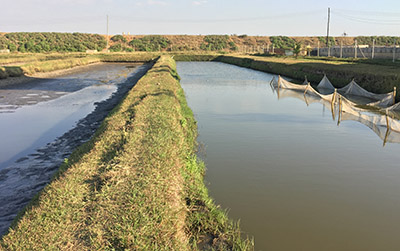
You have likely seen this statistic or a similar one: the global population is expected to reach 9.7 billion people by 2050; food production must increase by 60 percent. What will be our sustainable source for meeting the global need for food? It is unlikely that increasing agricultural commodities can be the sole solution. Expanding crop production could worsen several existing dilemmas, such as natural resource depletion, urbanization expansion and lack of agricultural entrepreneurship.
The situation has additional complexities in Sub-Saharan Africa. In much of the region, people’s diets contain inadequate nutrition and protein is limited, leading to malnutrition with widespread negative long-term societal and economic impacts. Food security for these developing nations means finding new ways to provide high-quality diets that are safe, sustainable, scalable, affordable and widely available.
This is the focus of a grant awarded in 2017 by Michigan State University’s Alliance for African Partnership (AAP). The funding supports “inception stage” partnerships with real-world impact that improve African lives and livelihoods. Insects are part of the solution for this collaborative partnership between MSU, Lilongwe University of Agriculture and Natural Resources in Malawi (LUANAR) and the University of Malawi, College of Medicine (UM-COM). The project aims to improve food security in Malawi by increasing protein production through a novel feedstock—insects.
Insects as feed or food is a comprehensive approach using sustainable and economically viable practices. MSU entomologists on the research team include assistant professor Jennifer Pechal and associate professor Eric Benbow. Their collaborators are Jeremiah Kang’ombe, Andy Safalaoh and Kingsley Masamba at LUANAR; and Arox Kamng’ona at UM-COM.
The research team is exploring the use, optimization and safety of farming insects for protein-rich livestock feed and human food; identifying beneficial insect recyclers, such as the black soldier fly [Hermetia illucens L. (Diptera: Stratiomyidae)], to effectively convert organic waste biomass into insect biomass for nutritious feed or food. Black soldier fly larvae are voracious consumers of decomposing organic material and use the nutrients found in common waste to complete their life cycle. Larvae feeding on decomposing organic matter (e.g., pre- or post-consumer waste or agricultural waste) result in insects that are high in protein and lipids.
Once larvae leave their food resource to pupate, they can be harvested, dried and milled for use as a feedstock for livestock, poultry and aquaculture. The scientists are also examining the role and perception of using native insects (e.g., mopane worms) as food for humans.
Many successes have resulted from this project that will ultimately create positive developmental impacts, capacity building and social value within Malawi. Progress has been made towards developing long-term partnerships with African, European and U.S. institutions, local stakeholders and marginalized individuals such as youth and women in a community. Overall, there is tremendous potential to improve food security, increase agricultural sustainability and enhance progress for nations to achieve a zero-waste status through using insects.

Aquaculture facility at LUANAR in Lilongwe, Malawi, during a team meeting in September 2017.



 Print
Print Email
Email
